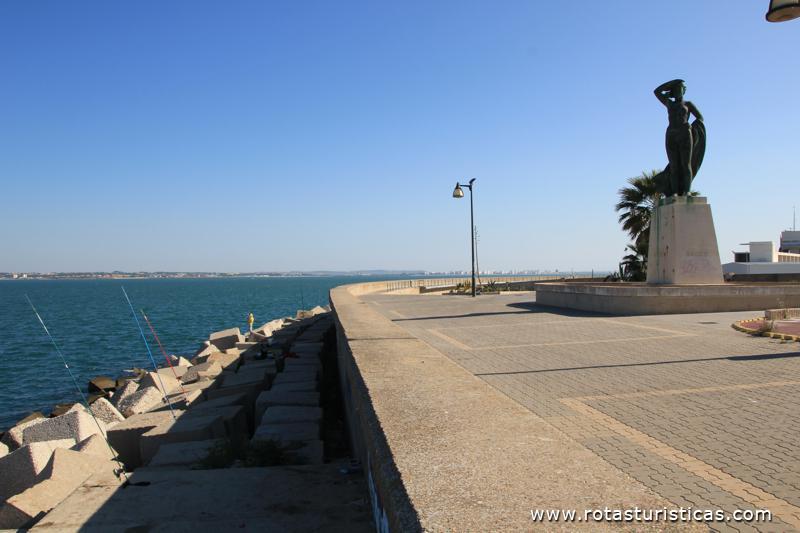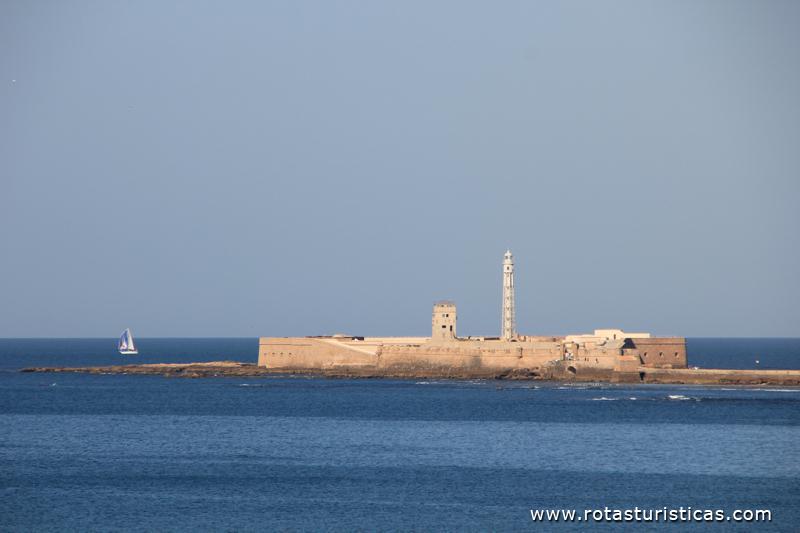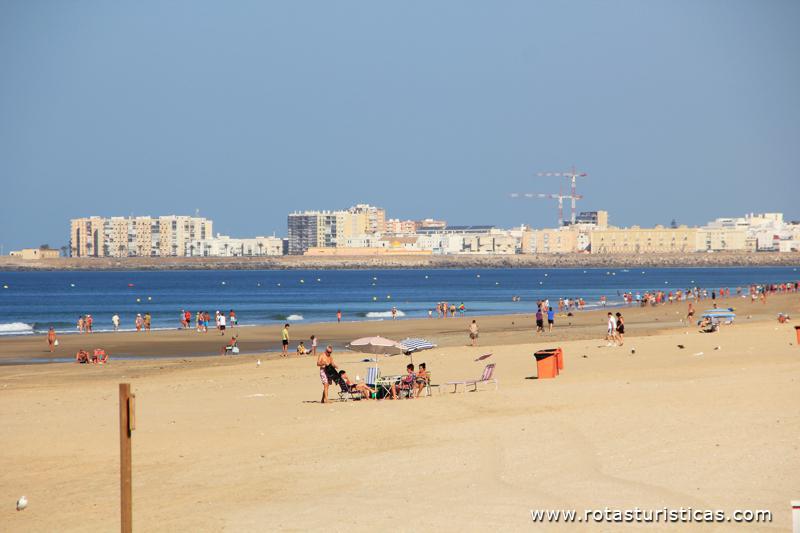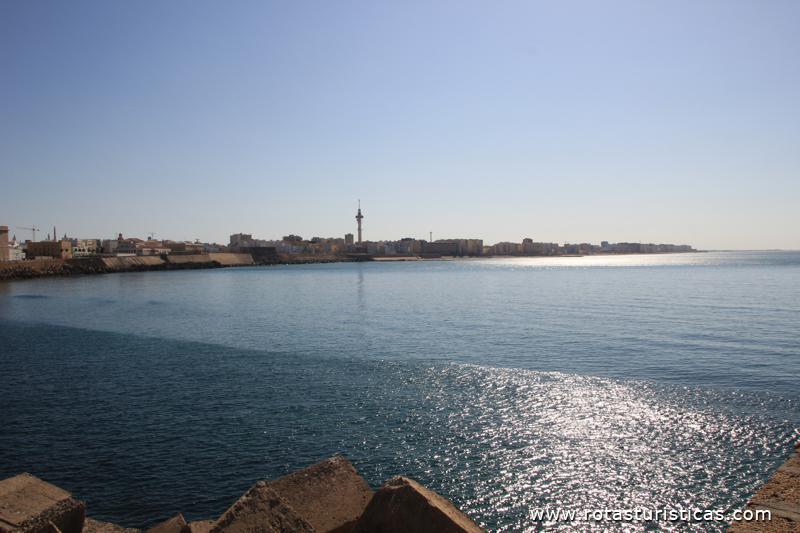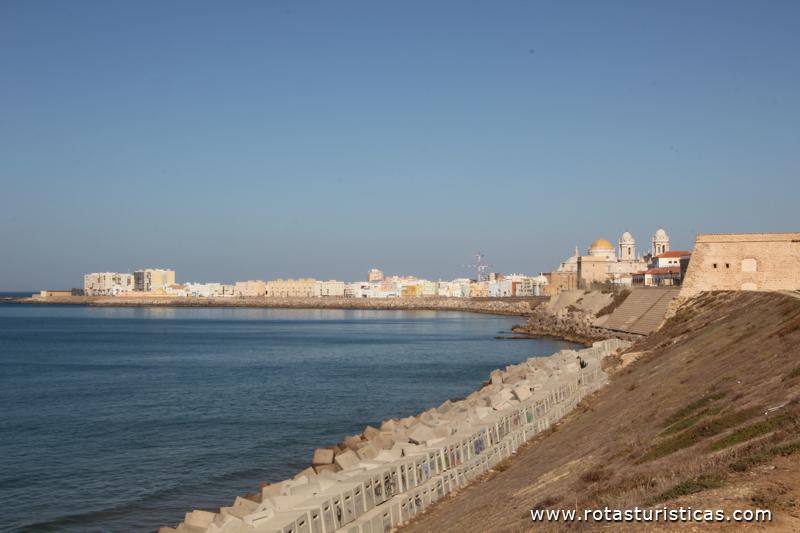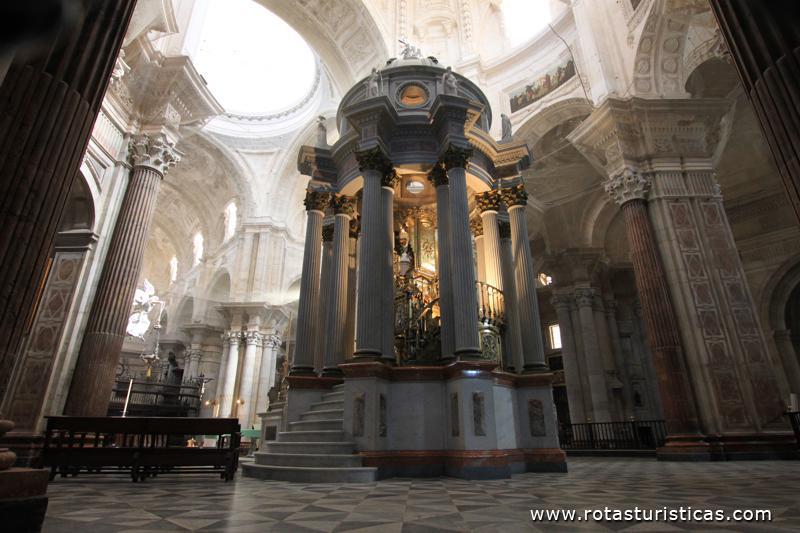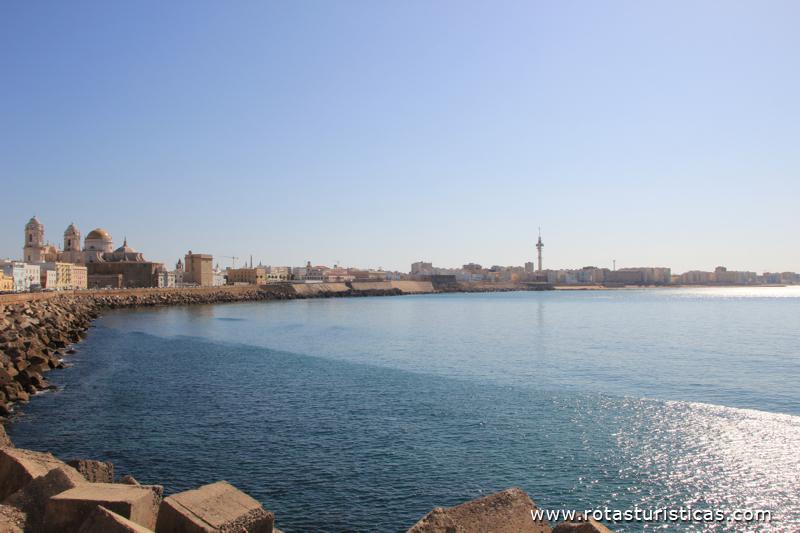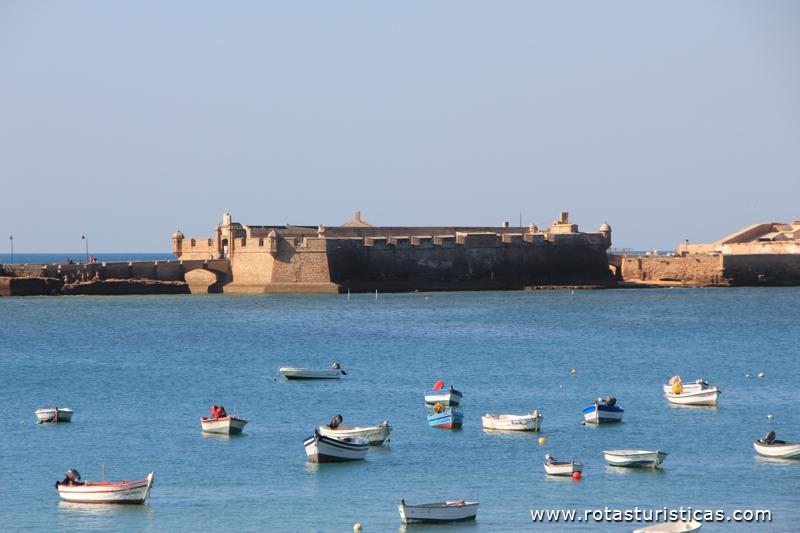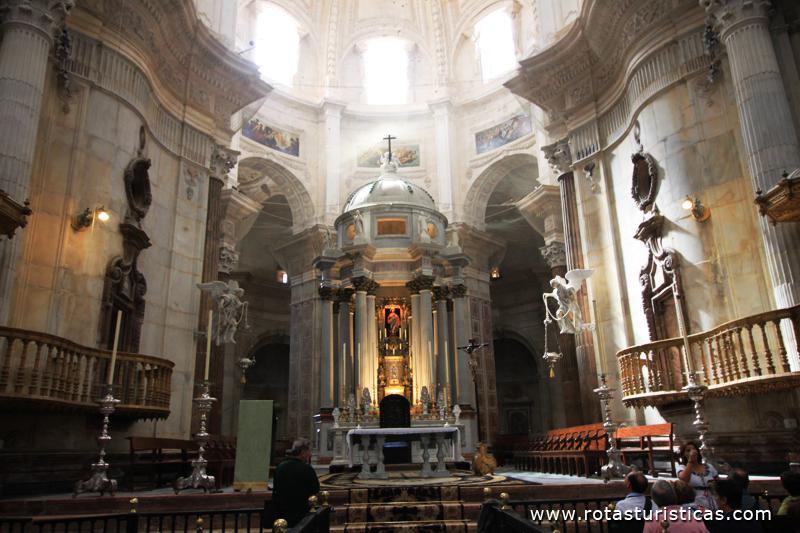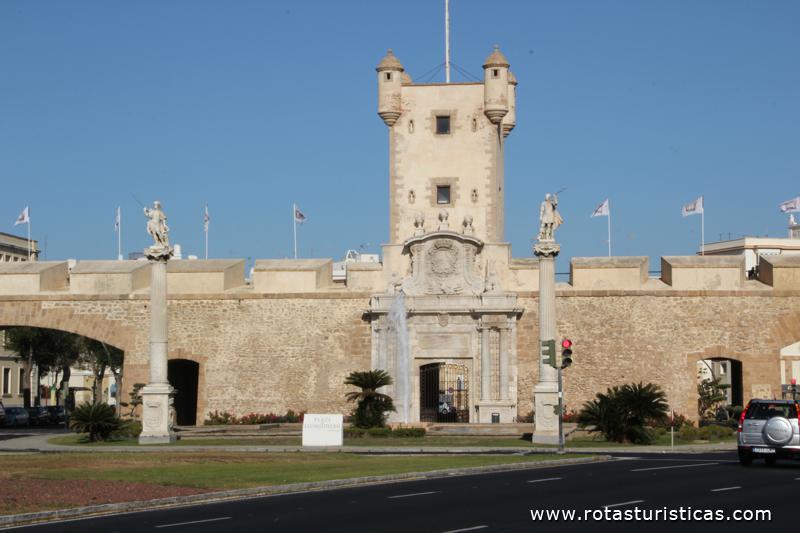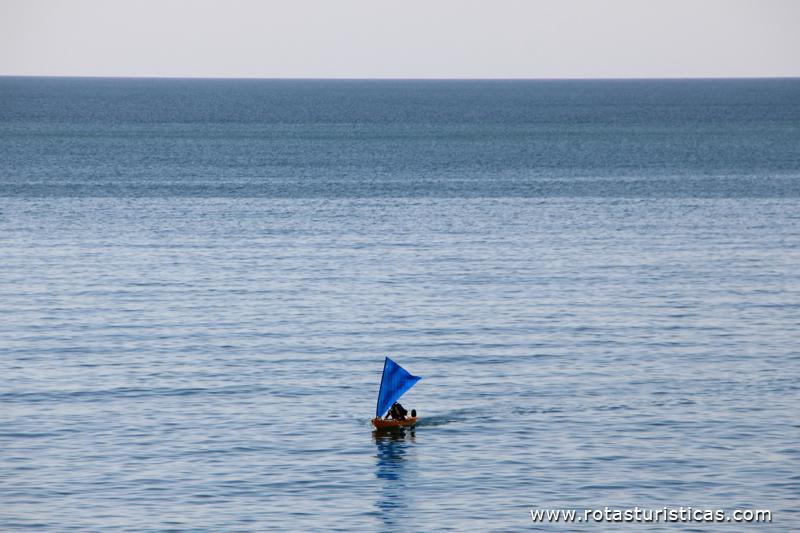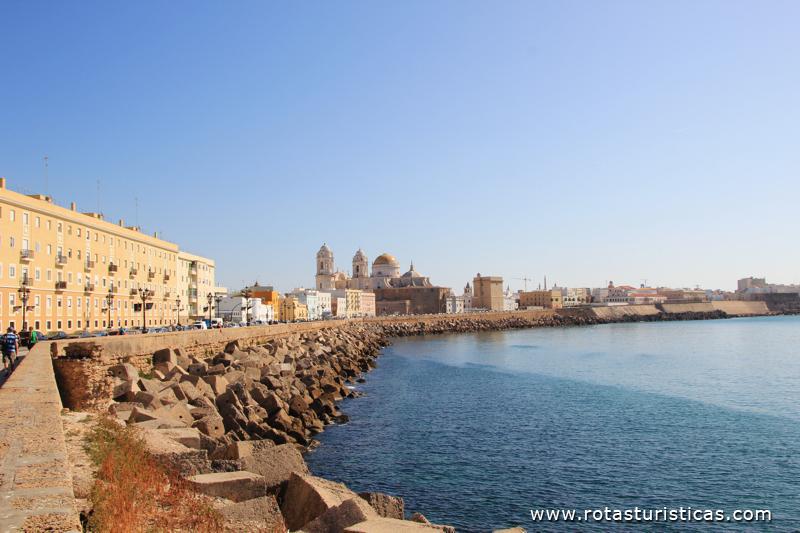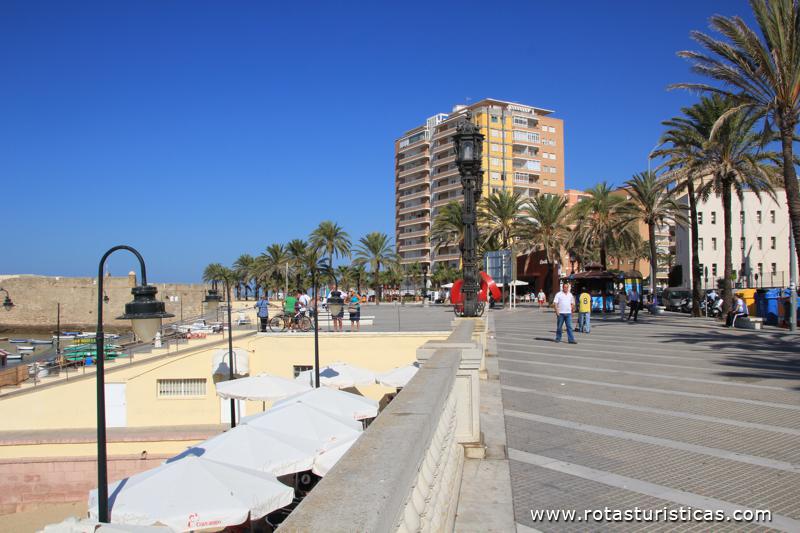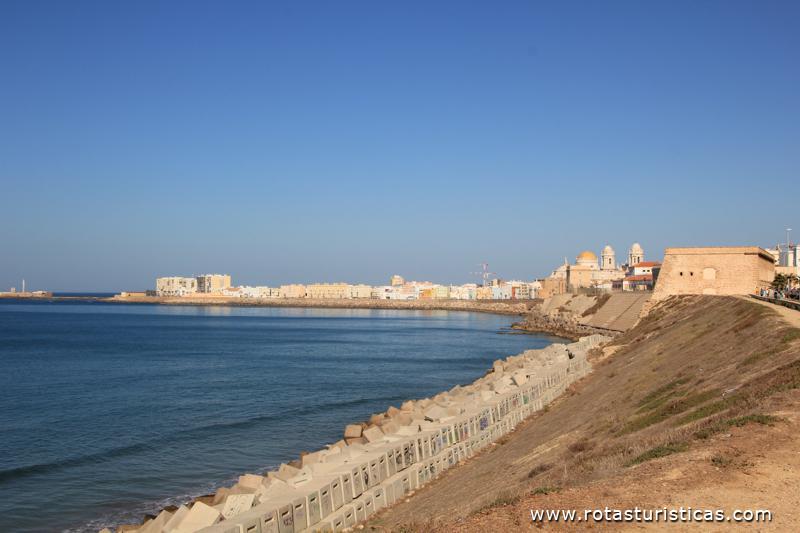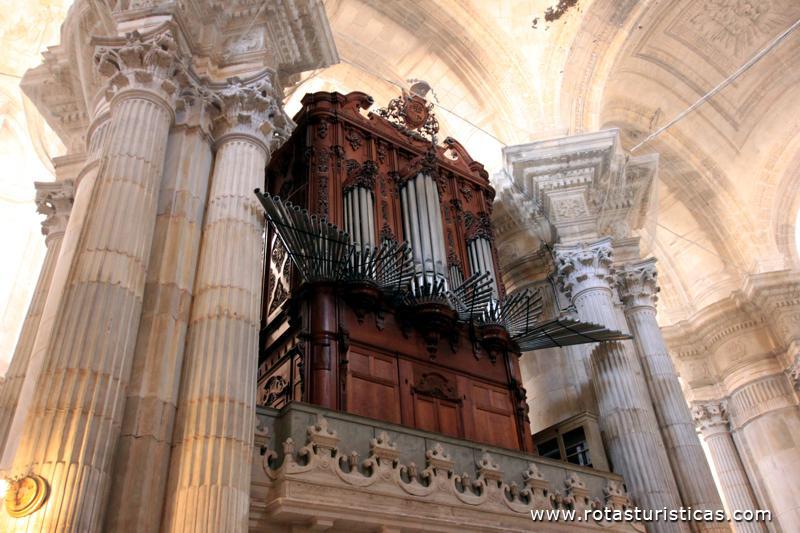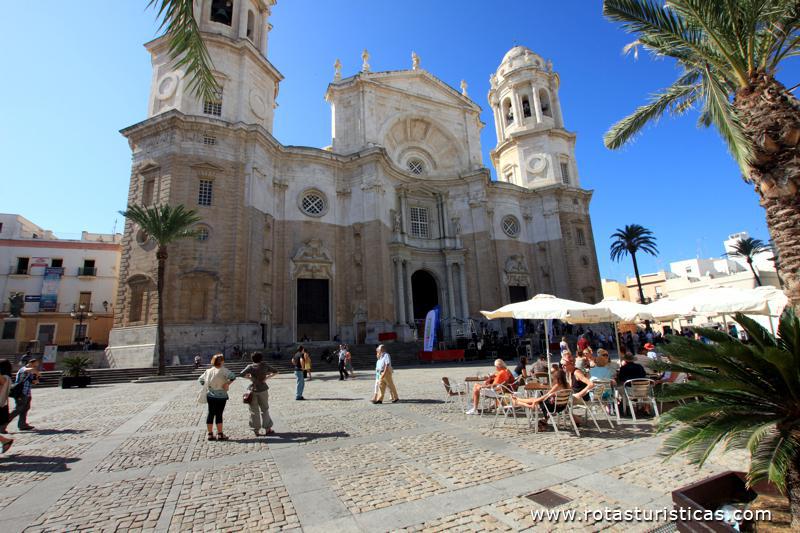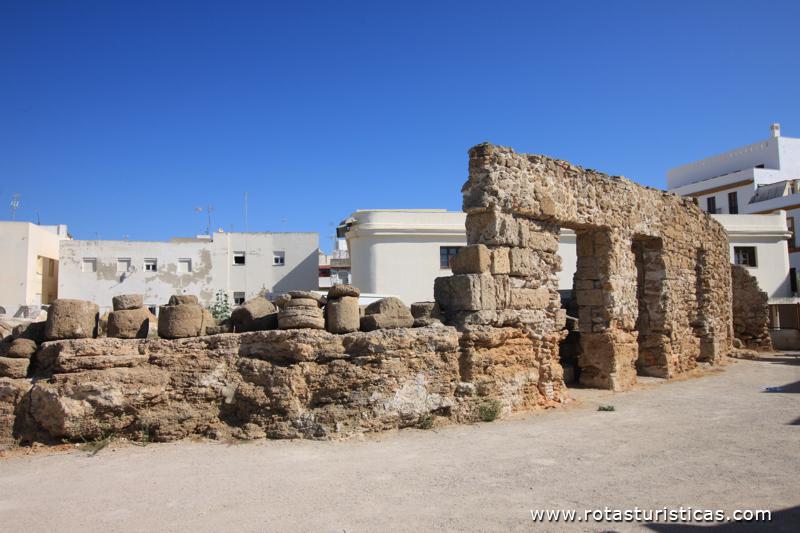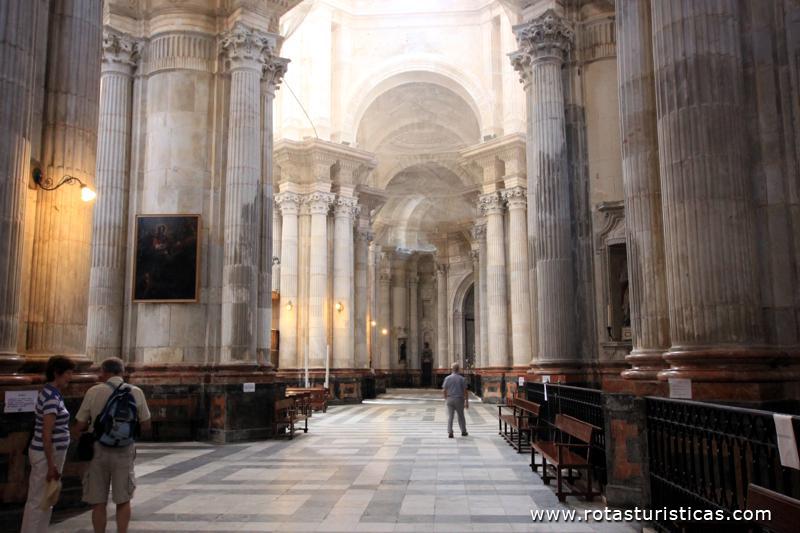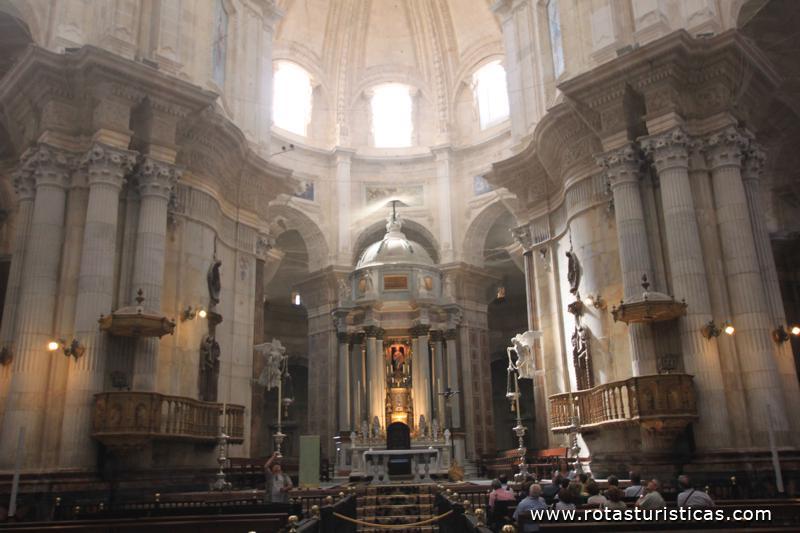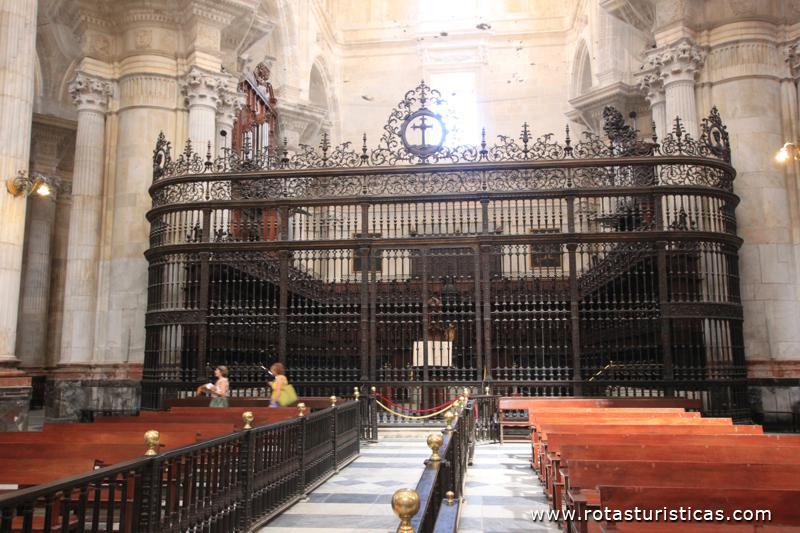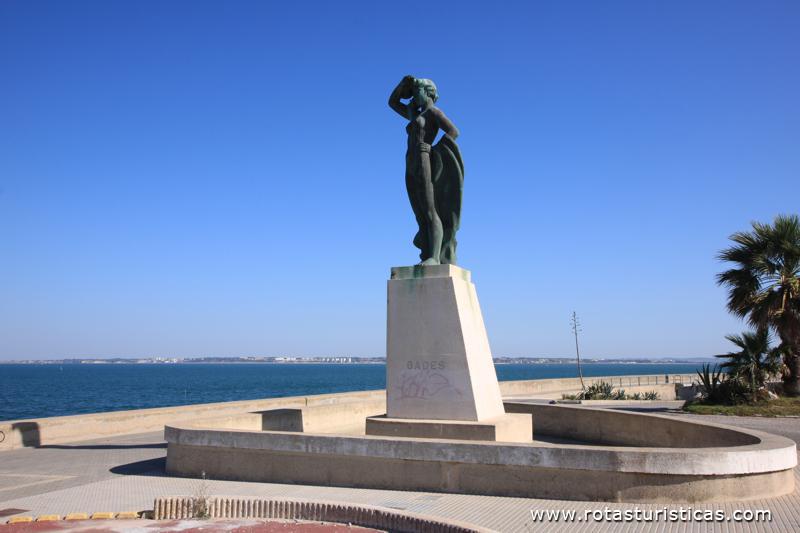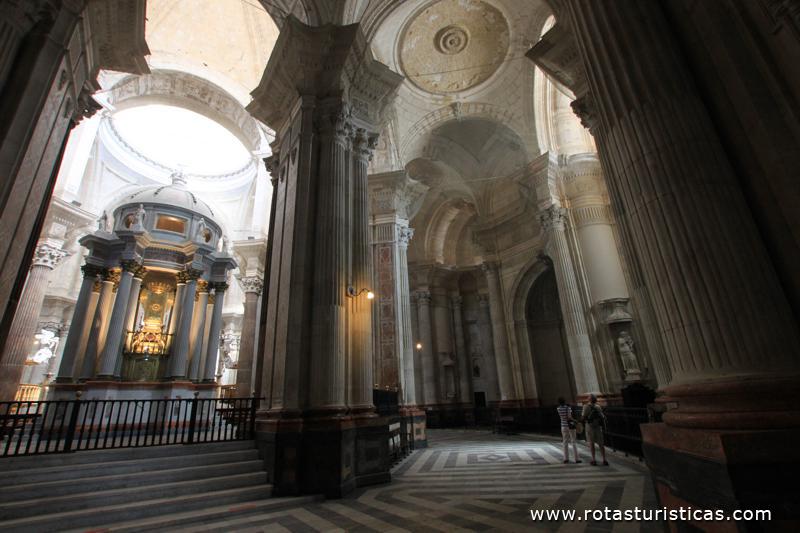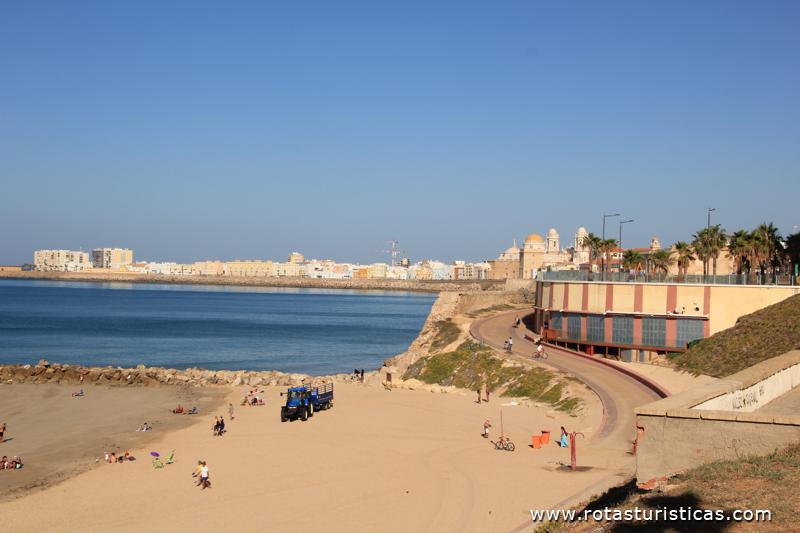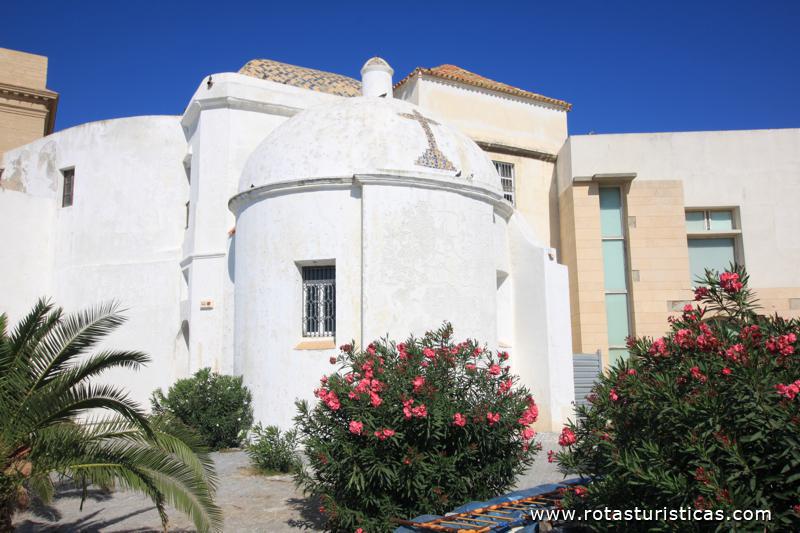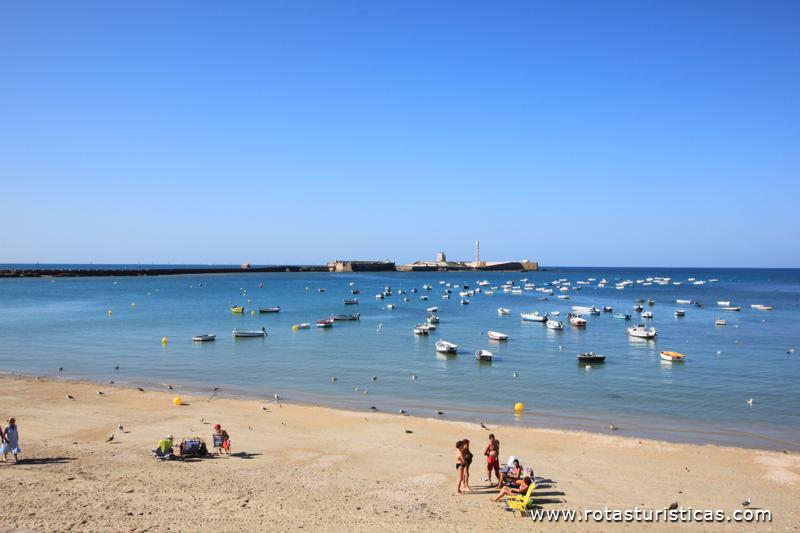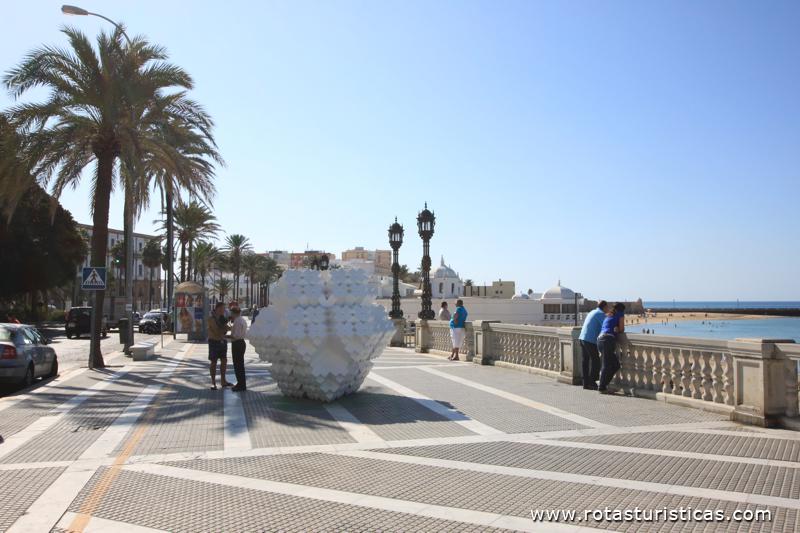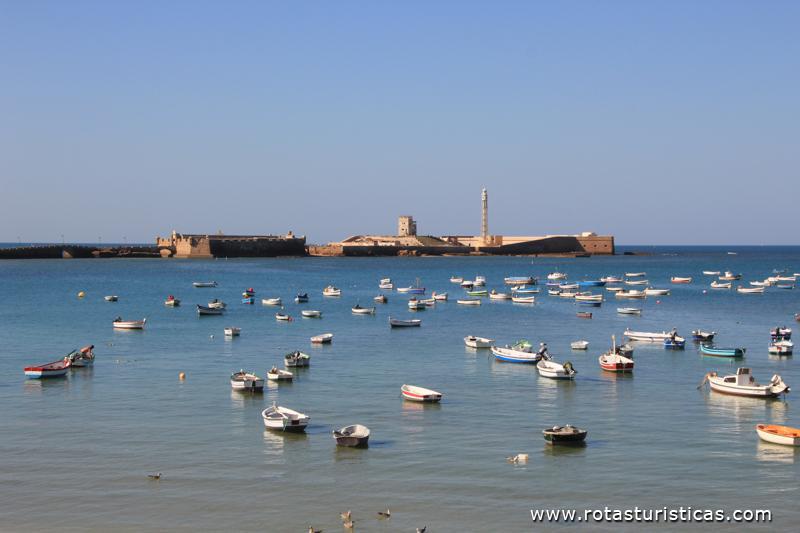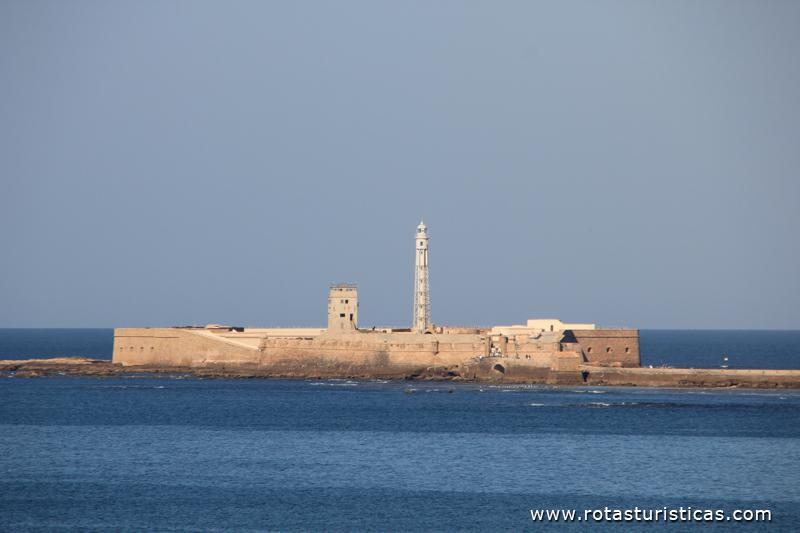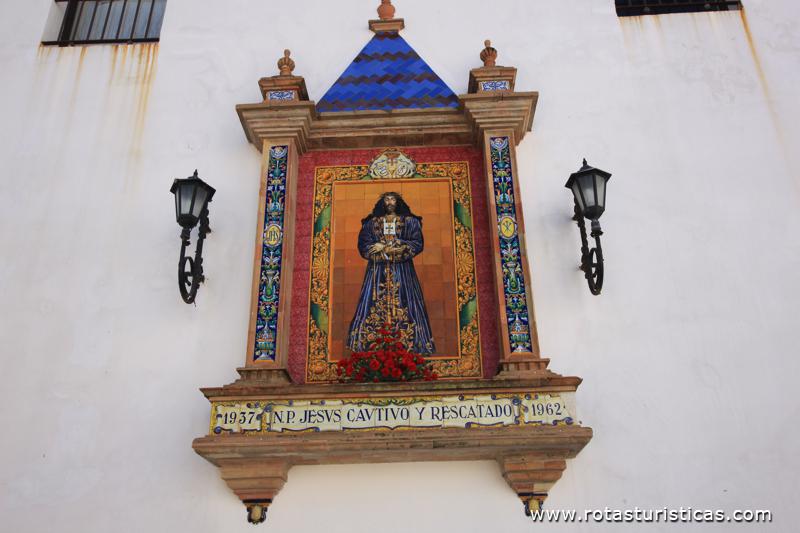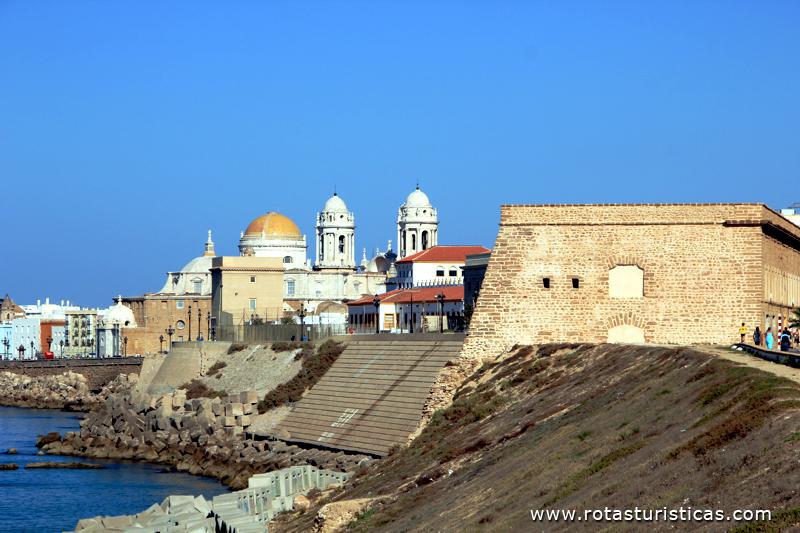Pictures of: Cadiz, Andalusia
Location map
Airports
Hotels and other Accommodation
Golf Courses
What to visit
Where to Eat
Where to have fun
Consulates & Embassies
World Nomads
The Travel Insurance with the largest coverage

The Travel Insurance with the largest coverage

Cadiz
Cadiz is a city and port in southwestern Spain, capital of the province of Cadiz, one of eight that make up the autonomous community of Andalusia.
Cadiz, the oldest continuously inhabited city in Spain and one of the oldest in southwest Europe, has been a major port of the Spanish navy since the accession of the Spanish Bourbons in the 18th century.
Despite its unique location, a narrow slice of land surrounded by the sea, Cadiz is in many ways, a typically Andalusian town with a wealth of attractive landscapes and well preserved historical monuments.
The oldest part of Cadiz within the remains of the city walls is generally referred to as the Old Town (Old Town), characterized by the antiquity of its various quarters (neighborhoods), among them El Pópulo, La Viña, and Santa Maria, which contrast sharply with the newer areas of the city.
Although the street plan of the Old City consists of narrow winding alleys that connect large squares, the newer areas of Cadiz usually have broad avenues and more modern buildings. In addition, the city is dotted with numerous parks where exotic plants flourish, including giant trees supposedly brought to Spain from the New World by Columbus.
Cadiz, the oldest continuously inhabited city in Spain and one of the oldest in southwest Europe, has been a major port of the Spanish navy since the accession of the Spanish Bourbons in the 18th century.
Despite its unique location, a narrow slice of land surrounded by the sea, Cadiz is in many ways, a typically Andalusian town with a wealth of attractive landscapes and well preserved historical monuments.
The oldest part of Cadiz within the remains of the city walls is generally referred to as the Old Town (Old Town), characterized by the antiquity of its various quarters (neighborhoods), among them El Pópulo, La Viña, and Santa Maria, which contrast sharply with the newer areas of the city.
Although the street plan of the Old City consists of narrow winding alleys that connect large squares, the newer areas of Cadiz usually have broad avenues and more modern buildings. In addition, the city is dotted with numerous parks where exotic plants flourish, including giant trees supposedly brought to Spain from the New World by Columbus.
Tourism
With around 3000 days of sunshine per year, it is undoubtedly the climate of Cadiz one of its main attractions, hence the Cadiz coast, to be known as the Costa de Luz.
In addition to the Mediterranean sea, the climate invites visitors all year round to walk and enjoy the charm of nature, beaches, monuments, terraces, in short, live in a province with 3000 years of history.
The coast of Cadiz is part of the Costa de la Luz (Costa de la Luz) where there are numerous beaches of golden sand, from urban areas to vast strips almost virgin sand.
Inside the city, the popular White Villages Route is highly recommended.
Cadiz has three festivals of International Tourist Interest: the prestigious Carnival of Cadiz, the unique events of horse racing on the beach of Sanlúcar de Barrameda, and the elegant Horse Fair in Jerez de la Frontera. Part of the province is also within the Doñana National Park, there are also five more natural reserves in the exceptional natural environment of Cadiz.
In addition to the Mediterranean sea, the climate invites visitors all year round to walk and enjoy the charm of nature, beaches, monuments, terraces, in short, live in a province with 3000 years of history.
The coast of Cadiz is part of the Costa de la Luz (Costa de la Luz) where there are numerous beaches of golden sand, from urban areas to vast strips almost virgin sand.
Inside the city, the popular White Villages Route is highly recommended.
Cadiz has three festivals of International Tourist Interest: the prestigious Carnival of Cadiz, the unique events of horse racing on the beach of Sanlúcar de Barrameda, and the elegant Horse Fair in Jerez de la Frontera. Part of the province is also within the Doñana National Park, there are also five more natural reserves in the exceptional natural environment of Cadiz.
Gastronomy
Cadiz is also known for its delicious cuisine and particularly for its "fried fish" (perfectly fried dishes of a wide variety of fresh fish) and seafood, preferably accompanied by wines that can be found in wine and brandy routes in the region of Marco de Jerez.
Weather
Cadiz has a mild Mediterranean climate with dry and hot summers and moderate seasonality.
The average annual temperature is 18.1ºC (64.6ºF).
Total annual precipitation average 641 mm.
The average annual temperature is 18.1ºC (64.6ºF).
Total annual precipitation average 641 mm.
Other tourist destinations in:
Spain
Spain
Other world tourist destinations
Why to book with
The best prices
Our partnerships with the world´s largest operators offer research on the best market prices.
More options
At Rotas Turisticos you can book the hotel, buy the air ticket, book the transfer from the airport to the hotel and vice versa, book the local excursions, rent the car, take travel insurance and consult the places to visit and where to go.
Holiday Tips & Destinations
Hundreds of holiday destinations with all the options that allow you to easily choose the destination that best suits your dream vacation.
Links

